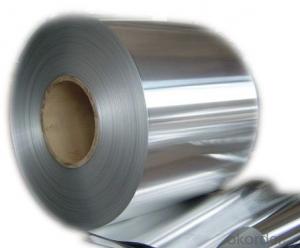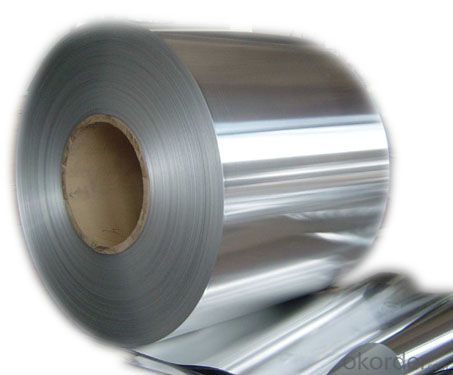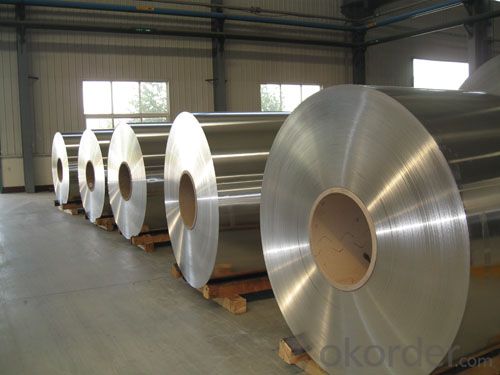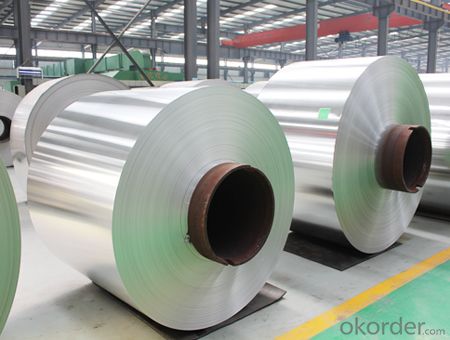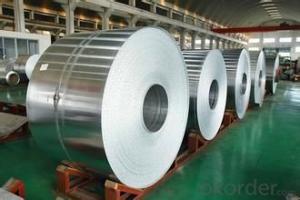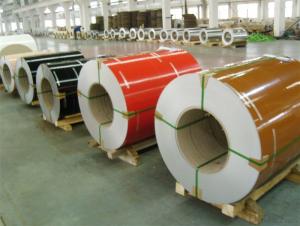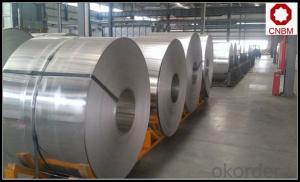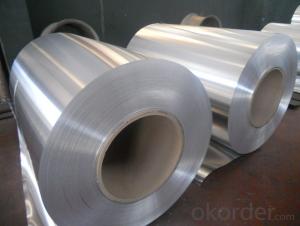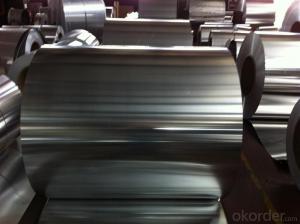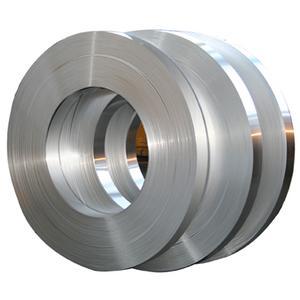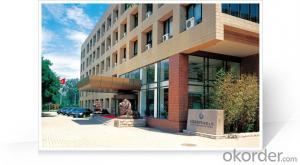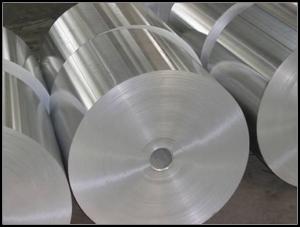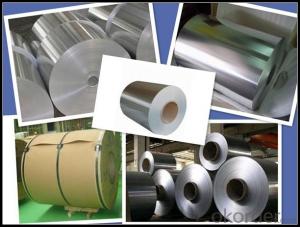Aluminum Coils Inc Manta Aluminum Strip / Coil/ Sheet/ Plate 1070 0-h112
- Loading Port:
- Shanghai
- Payment Terms:
- TT OR LC
- Min Order Qty:
- 5 m.t.
- Supply Capability:
- 2000 m.t./month
OKorder Service Pledge
OKorder Financial Service
You Might Also Like
Structure of Aluminum Strip / Coil/ Sheet/Plate 1070 0-H112 Description:
Aluminum Strip / Coil/ Sheet/Plate 1070 0-H112are of a wide range of colors, which gives wonderful appearance no matter in residential and commercial constructions of great exhibition centers.
The coated aluminum coil/sheet have been widely used in the fields of construction and decoration( garage doors, ceiling etc.), electronic appliances, lighting decoration, air-condition air pipes, sandwich panels and drainages etc.
Main Features of theAluminum Strip / Coil/ Sheet/Plate 1070 0-H112:
1) High flexibility
2) Impact resistance
3) Excellent weather-proof durability
4) Anti-ultraviolet
5) High erosion resist
Images of the Aluminum Strip / Coil/ Sheet/Plate 1070 0-H112:
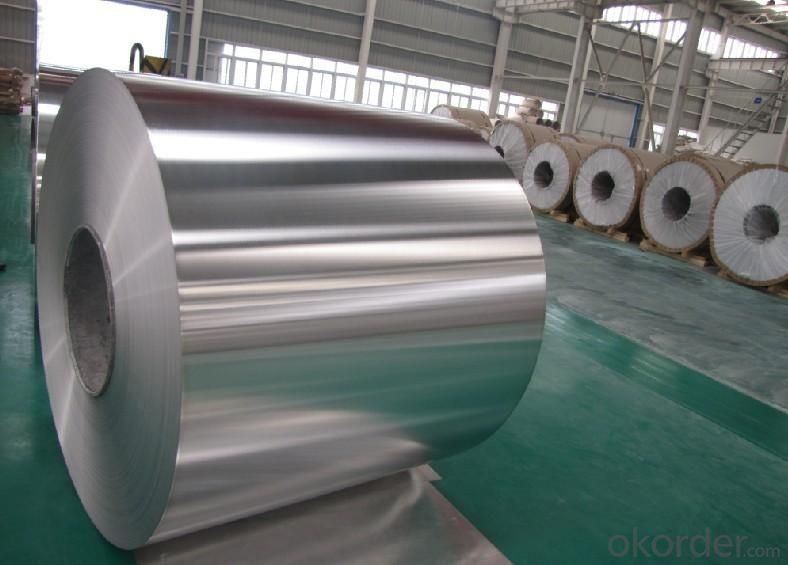
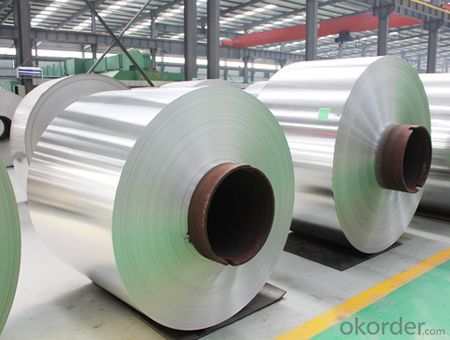
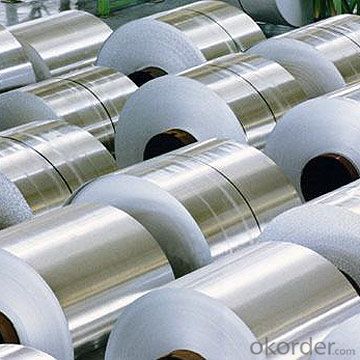
Aluminum Strip / Coil/ Sheet/Plate 1070 0-H112 Specification:
Alloy | A1100,A3003,A1050,A8011 etc |
Temper | H16,H18,H24 |
Thickness | From 0.024mm to 1.2mm |
Width | Standard width:1240mm |
Special width:1300mm,1520mm,1570mm,1595mm | |
Diameter | Standard dia:1200mm |
Interior dia:150mm,405mm,505mm | |
Weight | 2.5 T/coil,3.0 T/coil |
Coating | PE, PVDF, AC |
Surface | Embossed, mill finish, coated |
Color | AS to code RAL |
Gloss | 10-90%(EN ISO-2813:1994) |
Coating Thickness | PE: more than 18 micron |
PVDF: more than 25 micron | |
Coating Hardness (pencil resistance) | More than 2h |
Coating adhesion | 5J(EN ISO-2409:1994) |
Impact Resistance | No peeling or cracking(50 kg/cm,ASTMD-2794:1993) |
Flexibility (T-bend) | 2T |
MEK resistance | More than 100 |
FAQ:
a.What is monthly capacity
---CNBM is one stated own company and our monthly capacity is about 2000tons.
b. Now which countries do you export your goods?
---Now we export to South East Asia,Africa, North America,South America ect.
- Q: Aluminum extrusions are bars made with hollow cavities that allow each to be joined easily, using special connectors. The primary difficulty when painting aluminum extrusions centers on the fact that they are nonporous and durable. Each of these traits creates a complication of its own.
- Your question supposes that you need to Paint the Aluminum Extrusion. The more common thing to do is to Anodize the extrusion. This process coats all surfaces with a hard durable coating. There are several colors available. Actually It's common to use Urethane's to paint Aluminum and the primer isn't simply made for metal, but is specifically for Aluminum. A lot of Airplanes are coated every day in this manner. Methods for coating the insides of tubing have been used for a very long time. You basically fill the tube with primer or coating then drain the excess out (dip method) and difficult shapes can be powder coated or electro static coated. Extrusions can be roller coated after cleaning, vinyls work very well with out priming. Think Toothpaste tubes.
- Q: What is the corrosion resistance of aluminum coils in saltwater environments?
- Saltwater environments do not pose a problem for aluminum coils as they possess outstanding resistance to corrosion. This is primarily due to the creation of a protective oxide layer on the aluminum surface, effectively acting as a shield against corrosion. By forming a barrier, this oxide layer prevents direct contact between the aluminum and saltwater, significantly reducing the likelihood of corrosion. Furthermore, aluminum itself has inherent resistance to saltwater corrosion as it is a relatively inert metal. Consequently, aluminum coils are widely utilized in various marine applications, including boat hulls, offshore structures, and saltwater cooling systems. Nevertheless, it is crucial to acknowledge that prolonged exposure to saltwater can still result in some degree of corrosion over time. To enhance the durability and performance of aluminum coils in saltwater environments, regular maintenance and suitable protective coatings are advised.
- Q: May anyone tell me what's the product when hydrochloric acid reacts with aluminum?HCl + Al → ?
- Amonia Hydrochlorite
- Q: Are aluminum coils suitable for high-strength applications?
- No, aluminum coils are not typically suitable for high-strength applications. Aluminum has lower tensile strength compared to other metals like steel, making it less ideal for high-stress or heavy-duty applications where strength is a critical factor.
- Q: How do aluminum coils contribute to the fire resistance of products?
- The fire resistance of products is enhanced by aluminum coils in multiple ways. To begin with, aluminum possesses a high melting point, enabling it to endure high temperatures without deforming or melting. This attribute is critical in thwarting the fire's propagation as it preserves the product's structural integrity, thereby restricting the fire's ability to infiltrate or weaken it. Moreover, aluminum exhibits exceptional thermal conductivity, allowing it to efficiently disperse heat. This characteristic plays a pivotal role in fire resistance since it aids in cooling the surrounding area, thereby minimizing the likelihood of ignition or combustion of nearby materials. By swiftly transferring heat away from the source, aluminum coils can impede the fire from spreading or escalating. Furthermore, aluminum is non-combustible, signifying that it does not burn or support combustion. This property assumes great importance in fire resistance as it prevents the aluminum coils from serving as fuel for the fire. Instead, aluminum acts as a barrier, impeding the flames from reaching other flammable materials and diminishing the overall fire hazard. Additionally, aluminum displays resistance to corrosion, allowing the coils to maintain their structural integrity over time, even in environments with high humidity or corrosive elements. This durability is crucial as it ensures that the fire resistance properties of products remain intact, providing enduring protection against fire hazards. In summary, the fire resistance of products is bolstered by aluminum coils due to their high melting point, excellent thermal conductivity, non-combustible nature, and resistance to corrosion. These properties collaborate to restrict the fire's spread, efficiently dissipate heat, prevent the addition of fuel to the fire, and preserve the product's structural integrity, ultimately enhancing its fire resistance capabilities.
- Q: Are there any restrictions on the coil length of aluminum coils?
- Yes, there are restrictions on the coil length of aluminum coils. The maximum coil length is typically determined by the capabilities of the equipment used for coil production and handling. Factors such as the size and capacity of coil winding machines, transportation and storage limitations, and the weight and stability of the coil itself all play a role in determining the maximum coil length. Additionally, longer coils may be more prone to handling and logistical issues, such as increased risk of damage during transportation or difficulties in uncoiling and processing. Therefore, it is important to consider these restrictions and limitations when determining the appropriate coil length for aluminum coils.
- Q: How do aluminum coils contribute to the energy efficiency of products?
- Aluminum coils play a vital role in enhancing the energy efficiency of various products. To begin with, aluminum is renowned for its exceptional thermal conductivity, which facilitates efficient heat transfer. This characteristic enables aluminum coils to swiftly and effectively move heat between different components within a product, such as air conditioning systems or refrigerators. By efficiently dissipating heat, aluminum coils assist these products in operating more efficiently, reducing energy consumption, and ultimately saving costs for consumers. Furthermore, aluminum possesses the advantage of being a lightweight material, making it easier to incorporate into various products without adding unnecessary burden. This is particularly advantageous for industries like automotive and aerospace, where reducing weight is crucial for enhancing fuel efficiency. Through the use of aluminum coils in these applications, manufacturers can create lighter and more energy-efficient vehicles or aircraft, resulting in decreased fuel consumption and emissions. Moreover, aluminum coils offer exemplary resistance to corrosion. This is especially beneficial for products exposed to moisture or harsh environments, as it prevents rust and deterioration over time. By maintaining the performance and integrity of the coils, the overall energy efficiency of the product is preserved, ensuring optimal operation for an extended duration. In conclusion, aluminum coils make a significant contribution to the energy efficiency of products through their thermal conductivity, lightweight characteristics, and corrosion resistance. By effectively transferring heat, reducing weight, and preventing degradation, these coils facilitate the more efficient operation of products, leading to lower energy consumption, cost savings, and a reduced environmental impact.
- Q: wood aluminium windows?
- Wooden windows provide insulation, Aluminium windows failed the EU standards for insulation.
- Q: Are there any specific installation requirements for aluminum coils?
- Aluminum coils have specific installation requirements that must be taken into account. When installing these coils, several factors need to be considered. First and foremost, it is crucial to provide adequate support and secure the coils properly during installation. Due to their weight, it is essential to prevent sagging or damage by using appropriate brackets or support structures. This ensures that the coils are firmly mounted. Secondly, the location and environment of the installation should be carefully assessed. Aluminum coils are commonly used in HVAC systems, so it is important to ensure that the installation area is free from any corrosive substances or chemicals that could harm the coils. Additionally, proper ventilation is necessary to prevent the accumulation of heat or moisture, as these factors can affect the coils' performance and lifespan. Moreover, it is imperative to adhere to the manufacturer's guidelines and recommendations for installation. These guidelines may include specific instructions regarding the type of fasteners or connectors to be used, the appropriate spacing between coils, and any other particular requirements for the specific aluminum coil being installed. By following these guidelines, the coils' optimal performance and longevity can be ensured. Lastly, it is highly advisable to enlist the services of a professional with experience in handling and installing aluminum coils. This will minimize the risk of any issues or damage resulting from incorrect installation. In conclusion, specific installation requirements for aluminum coils encompass proper support, consideration of the installation environment, adherence to manufacturer guidelines, and professional installation. By following these requirements, the optimal performance and longevity of aluminum coils can be achieved.
- Q: Can aluminum coils be used for heat sinks?
- Indeed, the utilization of aluminum coils as heat sinks is possible. Aluminum stands out as a favored option for heat sinks, thanks to its remarkable thermal conductivity attributes. These heat sinks are specifically engineered to disperse the heat generated by electronic parts, such as processors or power transistors, in order to avert overheating and guarantee optimum performance. By utilizing aluminum coils, heat can be effectively redirected away from the heat source and spread across a broader surface, resulting in efficient heat dissipation. Furthermore, aluminum possesses the advantages of being lightweight, resistant to corrosion, and cost-effective, rendering it an ideal material for heat sink applications.
Send your message to us
Aluminum Coils Inc Manta Aluminum Strip / Coil/ Sheet/ Plate 1070 0-h112
- Loading Port:
- Shanghai
- Payment Terms:
- TT OR LC
- Min Order Qty:
- 5 m.t.
- Supply Capability:
- 2000 m.t./month
OKorder Service Pledge
OKorder Financial Service
Similar products
Hot products
Hot Searches
Related keywords
